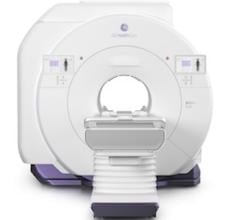
Getty Images
August 10, 2023 — The American College of Radiology (ACR), American College of Emergency Physicians (ACEP) and American Society of Anesthesiologists (ASA) applaud the Aug. 3 U.S. District Court for the Eastern District of Texas’ ruling that the government's exorbitant 600% fee increase to access the independent dispute resolution (IDR) process and its overly restrictive “batching” limitations violate federal law. The ruling does not impact the patient protections included in the No Surprises Act, which ACR, ACEP and ASA advocated for and continue to support, nor does it raise patient out-of-pocket costs.
The court agreed with plaintiffs — the Texas Medical Association (TMA), the Texas Radiological Society and Houston Radiology Associated — that the government wrongly raised the fees to participate in the IDR process established to resolve out-of-network care billing disputes, and restricted providers’ ability to submit claims for similar services in “batches” without giving providers advance notice and an opportunity to comment.
ACR, ACEP and ASA filed a joint amicus brief with the Texas court showing how fee guidance published Dec. 23 by the Centers for Medicare and Medicaid Services (CMS) is unworkable. Effective Jan. 1, 2023, CMS increased the non-refundable administrative fee to contest disputed insurer reimbursement from $50 to $350. This drastic increase precludes many providers — particularly radiologists — from participating as their billed services are routinely less than $350.
In addition, interim final rules (IFR) published in October 2021 unreasonably limit the batching of claims for the IDR process to the same or similar service codes. This means that only claims for the same code billed to the same insurance plan within a 30-day period may be batched, further limiting IDR access.
Physicians, who are forced to utilize the IDR process because of unreasonable insurance payments, are prevailing in the arbitrators’ decisions more than 70% of the time. The court’s ruling is an important step in ensuring that the dispute resolution system is accessible and fair, as envisioned by the law’s authors.
Notably, the government has suspended the IDR process, effective immediately, because of this latest court decision. CMS termed this as an “Unplanned Outage.” Physicians now must await further government guidance on how to submit claims under the IDR process for reimbursement of services.
ACR, ACEP and ASA stand ready to work with the federal government, patient groups and other stakeholders to find solutions that ensure a fair IDR process for out-of-network care payment that is sufficiently accessible, can ease growing case backlogs and will help safeguard patient access to care.
The Texas case solely impacts the IDR process to determine provider payment for out-of-network care.
For more information: www.acr.org
Related CMS Content:
ASTRO Issues Statement on MPFS Proposed Rule
US Government Issues Final Rules for Surprise Billing
CMS Withdraws Guidance on Surprise Billing, Out-of-Network Payment Disputes
ACR Joins "No Surprises Act" Lawsuit to Protect Patient Care
Major Medical Associations Ask Federal Court for Summary Judgement in No Surprises Lawsuit
Radiation Oncologists Applaud Biden-Harris Administration's Renewed Commitment to Cancer Moonshot
Racial/Ethnic Disparities Persist in Lung Cancer Screening Eligibility
Primary Lung Cancers Detected by LDCT are at Lower Risk of Brain Metastases
Physician and Patient Groups Call On CMS to Update Medicare Lung Cancer Screening Coverage
USPSTF Expands Lung Cancer Screening Eligibility Thresholds
Low-dose CT for Lung Cancer Screening: Benefit Outweighs Potential Harm
Physician and Patient Groups Call On CMS to Update Medicare Lung Cancer Screening Coverage


 February 20, 2026
February 20, 2026 









